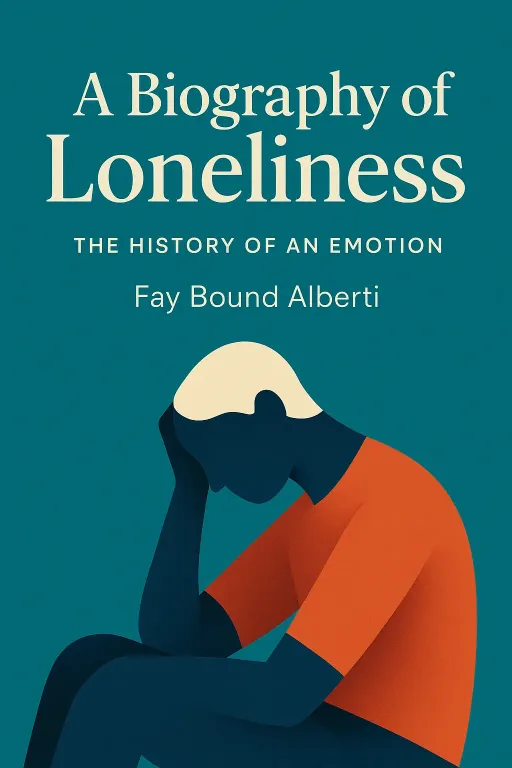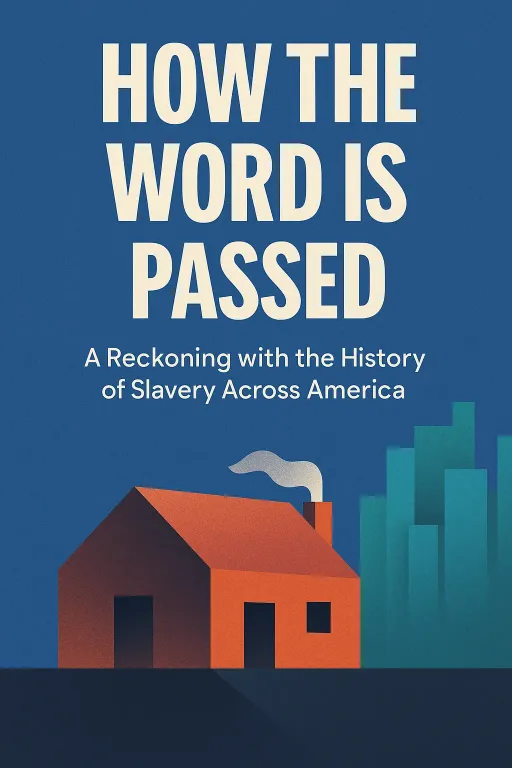
A Biography of Loneliness
10 minThe History of an Emotion
Introduction
Narrator: "God, but life is loneliness." This was the stark conclusion the poet Sylvia Plath wrote in her journal, a sentiment that haunted her life and echoed through her work. Plath felt a loneliness so profound she described it as a "disease of the blood," a vague, internal core of suffering that was impossible to trace to a single source. Her story, ending in tragedy, often serves as a powerful symbol of the isolating pain of the human condition. But what if this feeling—this specific, gnawing ache we call loneliness—is not a timeless feature of human existence? What if it has a history, a beginning, and a cultural story all its own?
In her book, A Biography of Loneliness: The History of an Emotion, historian Fay Bound Alberti embarks on a radical investigation into this very idea. She argues that the loneliness Plath felt, and that which is now described as a "modern epidemic," is a relatively recent invention. By tracing its evolution, Alberti reveals how our understanding of being alone has been shaped by seismic shifts in religion, philosophy, economics, and technology, forcing us to reconsider the very nature of this powerful emotion.
Loneliness Is a Modern Invention
Key Insight 1
Narrator: The book's most foundational argument is that loneliness, as we understand it today, did not always exist. Alberti demonstrates that before the 19th century, the word "loneliness" simply meant "oneliness"—the physical state of being alone, without the negative emotional weight it carries today. Solitude was often seen as a neutral or even desirable state, a way to commune with God or reflect on one's thoughts.
A powerful illustration of this shift can be seen by comparing two famous castaway stories. In Daniel Defoe's 1719 novel Robinson Crusoe, the protagonist is shipwrecked and spends 28 years in isolation. Yet, throughout his detailed account of survival, the word "lonely" never appears. His concerns are practical and spiritual, but he never expresses the modern emotional distress of loneliness. Fast forward nearly 300 years to the film Castaway. The protagonist, Chuck Noland, is also stranded on an island, but his psychological torment is central to the story. His desperation for connection becomes so intense that he creates a companion from a volleyball, which he names Wilson. He talks to it, argues with it, and is utterly devastated when he loses it at sea.
This stark contrast reveals a profound cultural shift. Alberti argues that the rise of individualism, the decline of religious frameworks that gave meaning to solitude, and the increasing emphasis on sociability during the Enlightenment all contributed to the "birth" of loneliness as a painful, negative emotion—a feeling of lack, rather than just a state of being.
The Romantic Ideal Creates a Void
Key Insight 2
Narrator: Modern loneliness is deeply intertwined with our cultural ideals about love. Alberti traces the popular concept of a "soulmate"—the one perfect person who completes us—back to Plato's Symposium. In the ancient Greek text, Aristophanes tells a myth of humans who were once whole beings, split in two by the gods and now destined to forever search for their other half.
While this idea has ancient roots, its modern interpretation has created a powerful and often damaging cultural script. The belief in "the one" frames romantic partnership not as a choice or a collaborative effort, but as a quest for a missing piece of oneself. This ideal is reinforced in literature, from the destructive passion of Catherine and Heathcliff in Wuthering Heights to the all-consuming, codependent romance in the Twilight series. In these narratives, love is often presented as a force that defines a person's entire worth, particularly for women.
The consequence, Alberti argues, is that this ideal sets an impossibly high bar for intimacy. It fosters a sense of personal failure and profound loneliness for those who remain single or are in relationships that don't match this cinematic ideal. Loneliness becomes the gap between the life one has and the life one is told they should have, a void created by the very myth that promises to fill it.
Loneliness Is a Physical Hunger
Key Insight 3
Narrator: Alberti insists that loneliness is not just a thought or a feeling; it is an embodied experience. Drawing on social neuroscience, she explains that the pain of social isolation activates the same regions of the brain as physical pain. Loneliness is described as a kind of "hunger," a primal signal from the body that a fundamental need—social connection—is not being met.
This physicality is powerfully depicted in Franz Kafka's short story, "A Hunger Artist." The story's protagonist starves himself for public spectacle, locked in a cage for all to see. He is looked at, but never truly seen as a person. His isolation is absolute, a physical and psychological imprisonment. He is starving not just for food, but for human contact and recognition.
This embodied perspective also explains the link between loneliness and consumerism. In a society that promotes material acquisition as the path to happiness, people often try to "feed" their emotional hunger with things. This creates a vicious cycle: materialism can damage social connectedness, which in turn increases the desire for consumer goods as a substitute for human relationships, further deepening the sense of isolation.
The Politics of an Epidemic
Key Insight 4
Narrator: While loneliness feels intensely personal, Alberti argues it is also deeply political. She connects the modern "epidemic of loneliness" directly to the rise of neoliberalism—an economic and social ideology that champions individualism, competition, and consumerism over collective well-being and social responsibility.
For decades, policies in countries like the UK and US have weakened the social safety net and eroded the public spaces where communities are formed. The book points to a stark irony: in 2018, the British government appointed its first-ever "Minister for Loneliness" to tackle the public health crisis. At the same time, however, years of austerity policies had led to the closure of thousands of libraries, community centers, and youth clubs—the very places that foster the connections needed to combat isolation.
This analysis reframes loneliness not as a personal failing or a psychological disorder, but as a predictable outcome of a society that systematically devalues community. When the social fabric is frayed by policies that encourage us to see each other as competitors rather than collaborators, a widespread sense of disconnection is the logical result.
The Creative Power of Chosen Solitude
Key Insight 5
Narrator: Despite its often-devastating effects, the book offers a crucial nuance: loneliness is not always a curse. Alberti distinguishes between the chronic, enforced loneliness that is so damaging and the chosen, temporary solitude that can be a gift. For many artists and thinkers, solitude is an essential ingredient for creativity and self-discovery.
The writer Virginia Woolf, for example, wrote in her diary about the "great agony" and "terror" of loneliness. Yet, she also described it as a "sanctuary," a necessary state for seeing "to the bottom of the vessel" and accessing a different reality required for her work. She actively sought out solitude to think, reflect, and create.
This perspective challenges the modern moral panic that treats all forms of being alone as a problem to be solved. For the Romantic poets, solitude was a path to spiritual communion with nature. For Woolf, it was a creative retreat. The key difference is agency. When solitude is chosen, it can be restorative and productive. It is when isolation is enforced by circumstance—poverty, illness, grief, or social exclusion—that it becomes a destructive force.
Conclusion
Narrator: The single most important takeaway from A Biography of Loneliness is that loneliness is not an inevitable part of the human condition, but a product of our history and our culture. It is an emotion with a biography, shaped by the stories we tell ourselves about love, the economic systems we live under, and the communities we build or allow to wither. By historicizing loneliness, Fay Bound Alberti strips it of its power as a timeless, universal curse and reveals it as a social and political challenge.
This understanding leaves us with a profound shift in perspective. Instead of asking only, "Why am I so lonely?", the book compels us to ask a much larger and more important question: "What are the conditions in our world that make so many of us feel this way, and what can we do, together, to change them?"









